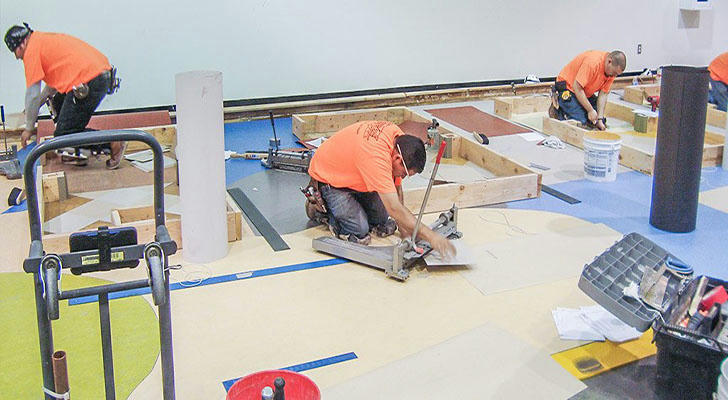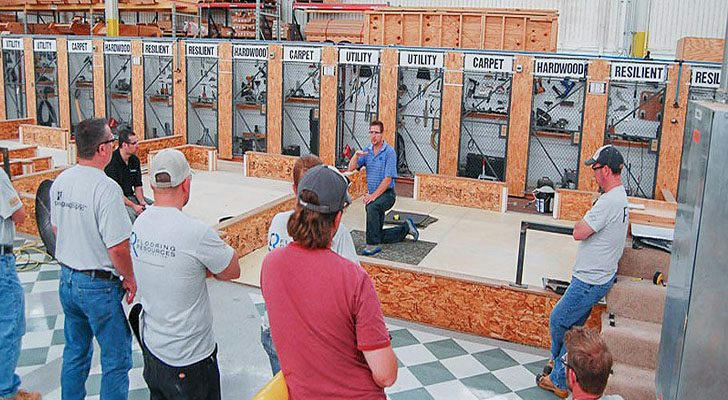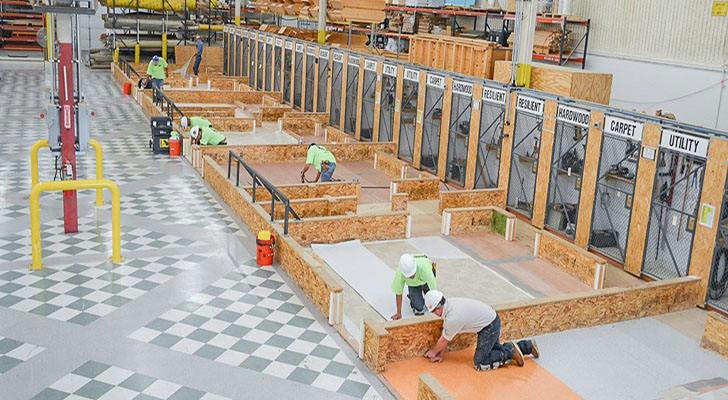Flooring Installation Training: Building a Skilled Career in Construction and Home Improvement
Flooring installation is a specialized trade that plays a crucial role in construction, renovation, and interior design. Skilled flooring installers transform bare subfloors into beautiful, durable surfaces that enhance the look and feel of homes, offices, and commercial spaces. For those interested in a hands-on career that combines craftsmanship with practical skills, flooring installation training provides a valuable pathway.
As the construction and remodeling markets continue to grow, demand for qualified flooring installers remains strong. This article explores what flooring installation training entails, the skills developed, career prospects, and how to get started.

What Is Flooring Installation Training?
Flooring installation training teaches individuals the techniques, materials, and safety standards involved in properly installing various types of flooring. This includes hardwood, laminate, vinyl, tile, carpet, and more.
Training programs typically cover surface preparation, measuring and cutting materials, laying techniques, fastening methods, finishing, and cleanup. Additionally, trainees learn about different flooring products, tools and equipment use, reading plans, and working safely on job sites.
Training may be offered through vocational schools, community colleges, apprenticeships, or specialized trade programs. Many programs combine classroom instruction with hands-on practice to ensure trainees gain real-world experience.
Core Skills and Knowledge
A successful flooring installer develops a range of technical and soft skills through training:
• Accurate measurement and layout skills to ensure flooring fits perfectly • Proficiency with hand and power tools such as saws, nailers, and trowels • Knowledge of different flooring materials and installation methods for each type • Surface preparation techniques including leveling and cleaning • Ability to follow blueprints and installation guides • Understanding of safety regulations to prevent workplace accidents • Time management and problem-solving skills for efficient project completion • Customer service skills when working in occupied homes or commercial spaces
Attention to detail is especially important since flooring must be level, secure, and visually appealing.
Training Program Formats
Flooring installation training can vary widely depending on the provider and region. Common formats include:
• Short-term certificate courses lasting a few weeks focused on basic installation techniques • Longer diploma or associate degree programs including construction fundamentals and project management • Apprenticeship programs combining paid on-the-job training with classroom learning, typically lasting 2-4 years • Employer-sponsored training where new hires receive direct instruction and supervision
Some programs also cover related skills such as subfloor repair, moisture barrier installation, and use of adhesives or sealants.

Career Outlook and Job Opportunities
The demand for qualified flooring installers is steady, fueled by new construction, remodeling projects, and increasing home improvement spending. Residential, commercial, and industrial sectors all require skilled flooring professionals.
Experienced installers often find work through flooring contractors, construction companies, remodeling firms, or as independent subcontractors. There is also potential to specialize in niche areas such as luxury hardwood, eco-friendly flooring, or commercial-grade installations.
According to industry data, flooring installers in the U.S. earn a median annual wage typically ranging from $35,000 to $50,000, with top earners exceeding $60,000. Earnings vary by experience, location, and type of work performed.
With additional experience and certifications, installers can advance to supervisory roles, project management, or start their own flooring businesses.
Who Should Consider Flooring Installation Training?
Flooring installation is ideal for individuals who enjoy physical work, craftsmanship, and problem-solving. Those who take pride in creating visually appealing and functional spaces will find this trade rewarding.
No formal education beyond high school is generally required, but a background in construction or manual trades can be beneficial. Physical stamina, good hand-eye coordination, and an ability to work independently or in teams are important traits.
For career changers, vocational programs provide a practical way to gain new skills without lengthy college commitments.
Getting Started with Flooring Installation Training
To begin training, prospective installers should research local vocational schools, community colleges, and trade associations that offer flooring programs. Apprenticeships provide excellent opportunities to learn directly from experienced professionals while earning income.
Costs vary depending on the program length and institution but generally range from a few hundred to a few thousand dollars. Financial aid or workforce development grants may be available to eligible students.
During training, participants should focus on mastering both technical skills and workplace safety. Building a portfolio of completed projects or gaining references can help secure employment.

Advantages of a Career in Flooring Installation
A career in flooring installation offers several benefits:
• Opportunities for stable, year-round employment in construction and remodeling sectors • A clear career path from entry-level installer to foreman, estimator, or business owner • The satisfaction of working on tangible projects that improve living and working environments • Potential for competitive wages and overtime pay • Flexibility to work in residential or commercial settings • Opportunities to specialize in emerging materials and sustainable flooring technologies
With ongoing demand and evolving flooring products, skilled installers who keep their knowledge current have excellent long-term prospects.
Conclusion
Flooring installation training equips individuals with practical skills and industry knowledge to succeed in a hands-on, rewarding career. The trade offers stability, growth potential, and the chance to create beautiful, functional spaces.
For those interested in joining the construction and home improvement industry, flooring installation provides a solid foundation and numerous pathways for advancement.
If you are ready to develop marketable skills and build a career grounded in craftsmanship and precision, consider enrolling in a flooring installation training program today.
